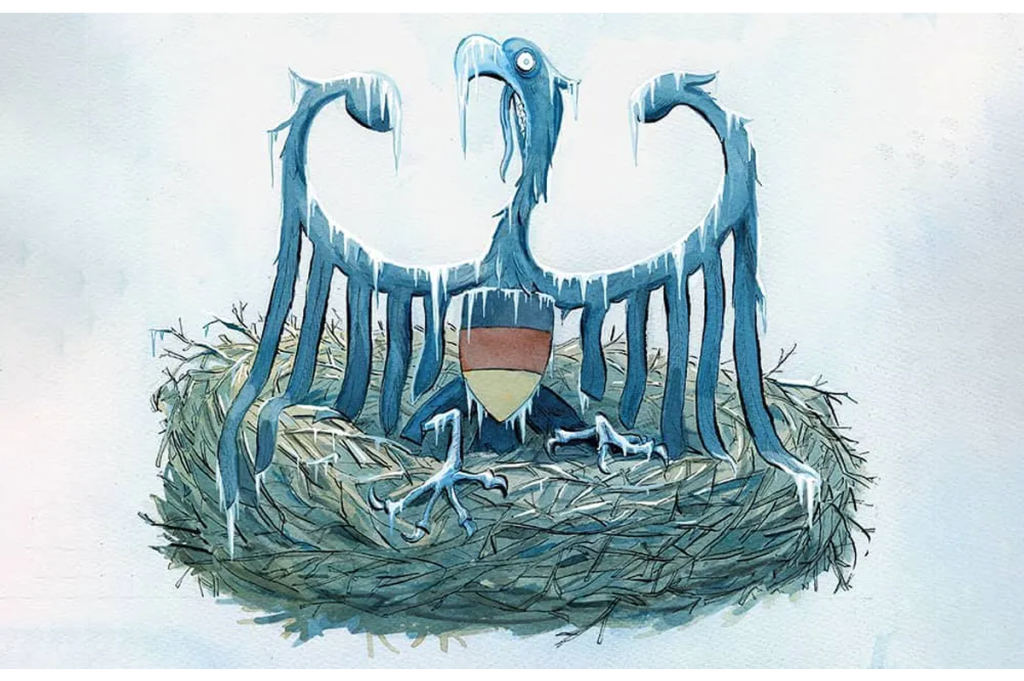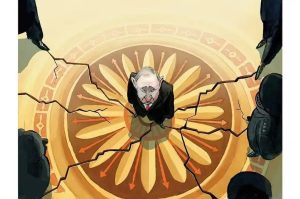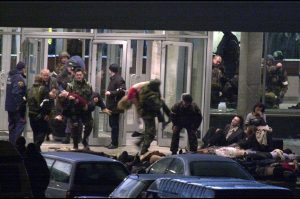Russia has a long history of using the cold to defeat Europe. The winter of 1812 arrested Napoleon’s special military operation. Hitler’s troops hit the deep-freeze outside the gates of Moscow in December 1941. Now Vladimir Putin has the option to turn off the gas sent to Europe — a strategy against which Germany appears to have no defense.
Gazprom, the monopoly supplier of piped Russian gas, has been giving Germany a taste of what life might be like, should Moscow play nasty. It recently halved the amount of gas sent through the Nord Stream 1 pipeline, using bogus technical excuses. Germany, which still relies on Russia for more than a third of its gas, is now realizing it may have to cope with a total gas embargo — and a cold winter. Last week its gas risk level was raised to stage two, a state of “alarm.”
Putin may keep the gas flowing at a reduced volume. But what if he cuts Germany off altogether? To say that Germany has made itself reliant on Russian gas doesn’t quite capture the enormity of what is going on. Germans need Russian gas to heat their homes. The country’s heavy industry depends on Russian hydrocarbons. According to Robert Habeck, the German economy minister, any sudden stop in Russian gas flows would trigger a domino effect: an economic crisis which he compares to the 2008 collapse of Lehman Brothers.
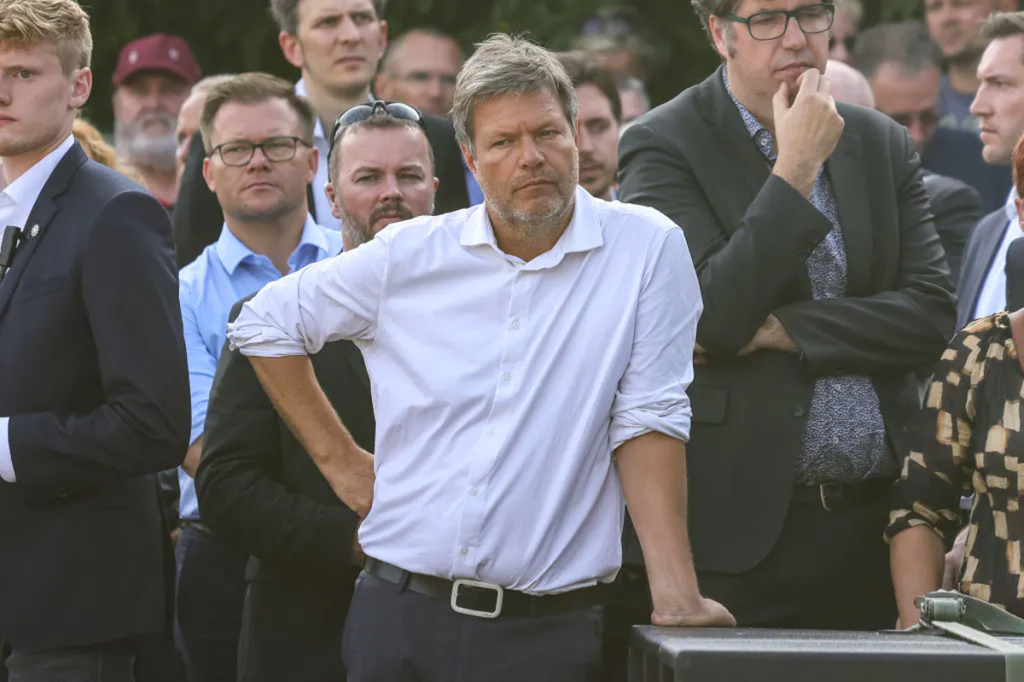
Habeck is also Olaf Scholz’s deputy chancellor and the Green Party’s most senior representative in the German government. He has been quite emphatic about how vulnerable his country is to Putin turning off the taps. “Companies would have to stop production, lay off their workers, supply chains would collapse, people would go into debt to pay their heating bills and people would become poorer,” he said last week. “It’s the best breeding ground for populism, which is intended to undermine our liberal democracy from within.” This isn’t just about gas. It’s about German democracy itself.
Why would Habeck say that out loud? Do such warnings not have the perverse effect of encouraging Putin to trigger a gas embargo? Perhaps that is Habeck’s intention? The Green Party has been most hawkish about cutting Germany off from Russian gas altogether and might even welcome such a severing for environmental reasons. But if Putin were to cut off the gas, Habeck’s ministry would be responsible for the consequences. Right now, Germany’s government can blame the country’s energy problems on their predecessors. If they encourage Putin to reduce supplies further, the blame will be put squarely on this leadership.
German newspapers are trying to brace readers for what could lie ahead. “The 1973 oil crisis, with its four car-free Sundays, seems like a dry run compared to what is now in store for German industry and consumers,” says one analysis in Die Welt. Germany aims to have its gas reserve containers 90 percent full by the winter — up from 60 percent now.
Germany’s gas regulator recently published seven scenarios for winter and spring. Six involve critical shortages. Only one envisages capacity at a moderately safe 25 percent in the winter (and 40 percent in the summer). But that is the scenario in which the Russians honor all the gas storage requirements under German law. In other words, there is zero room for any deviations. So if Putin keeps the gas flowing at a diminished rate, Germany could experience massive shortages this winter. This may well be Putin’s sweet-spot option. He could inflict damage, and still get most of the money as Russian gas sells at massively inflated prices.
Putin has previously resisted using gas and oil as diplomatic weapons even during earlier wars. When he annexed Crimea, the gas kept flowing through Ukraine. What is different this time is that the EU, US and UK have all placed sanctions on Russian fossil fuels. Habeck has set himself the target of reducing Germany’s Russian gas consumption to zero within two years — though he stands little chance of achieving that given the absence of alternative suppliers.
Faced with an inevitable loss of business from western Europe, it might become rational for Putin to pull the trigger himself and inflict maximum damage, rather than let Europeans dictate the terms by which they can ditch him.
Turning off the taps would cost the Kremlin gravely: gas that is not delivered cannot be easily stored or pushed back into the ground. Putin can afford it, though, thanks to his windfall from surging fuel prices. Russia’s current account surplus could reach some $200-250 billion this year — about double that of last year.
Sanctions are causing significant disruption under the bonnet of the Russian economy, however. We may see more damage as time passes. Yet what is indisputable is that Putin can afford a gas embargo, whereas Germany cannot. Scholz has told him that he is losing his German gas buyers in any case, so what’s to stop Putin exiting by inflicting maximum economic damage?
The big question is whether Germany’s solidarity with Ukraine can survive a cold winter — or force the German government to postpone the closure of its last nuclear power stations (a policy on which Habeck and the Greens are not willing to compromise). Germany’s remaining three nuclear power stations still provide 6 percent of the country’s electricity. But without Russian gas, Germany will need all the energy it can get.
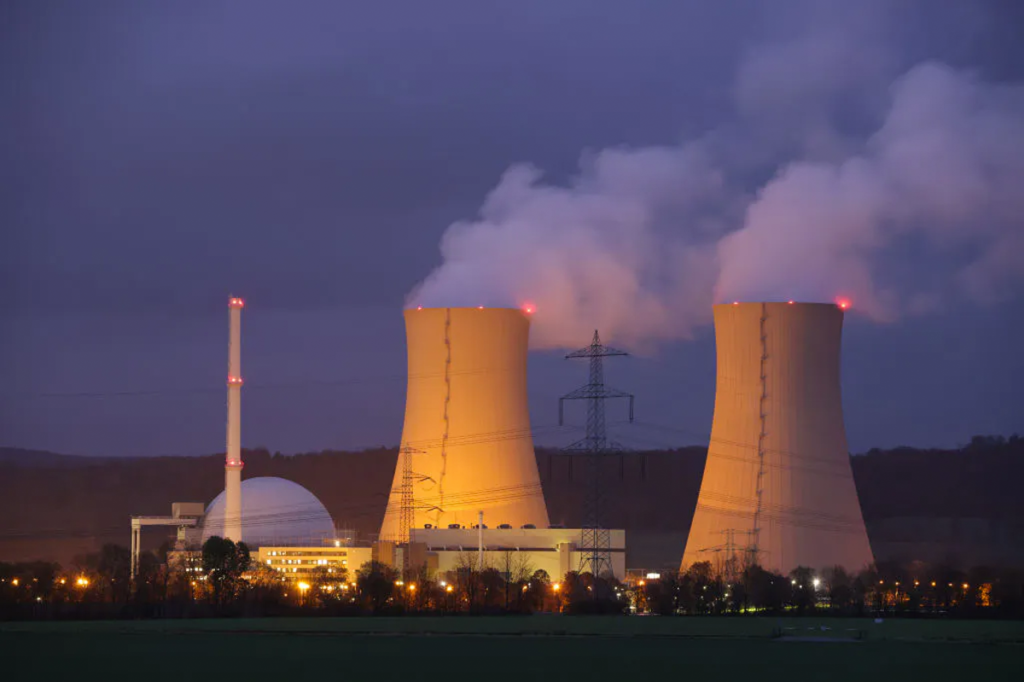
What is Putin likely to do? We can disregard rumors about his health or a Kremlin coup: such information is wishful thinking. Remember the respected armchair generals who told us in March that Russia would be militarily defeated? Or the predictions by Russia experts that Putin would never invade? Putin has told us many times what he thinks: that “Ukraine is not even a state” and should be part of Russia.
Putin’s failure to capture Kyiv demonstrated that his army is not as strong as he thought — but in fighting the economic war he has been more successful. He managed to get EU governments to blink first when it came to them paying for gas deliveries in roubles (even while pretending they don’t).
Putin is now so awash in cash that he can afford to use gas sanctions against the EU. Norbert Röttgen, the former chairman of the Bundestag’s foreign affairs committee, was quite right to say that Germany should have acted alone and moved right at the start to reduce gas consumption.
In due course, the West will find alternative suppliers and clever ways to cut out Russian commodities. Until then, Putin could use his vast commodities as instruments for leverage and blackmail. He is already holding wheat shipments from Ukraine. As Russia is the world’s largest exporter of wheat and fertilizer, and second largest exporter of oil, Putin will try to bring the West to the negotiating table by making all kinds of threats.
Putin knows Germany is the weak spot of the western alliance, and that energy security is its greatest vulnerability. A gas embargo is not without risk for him, but he holds a strong hand. He may choose to play it.
This article was originally published in The Spectator’s UK magazine. Subscribe to the World edition here.



